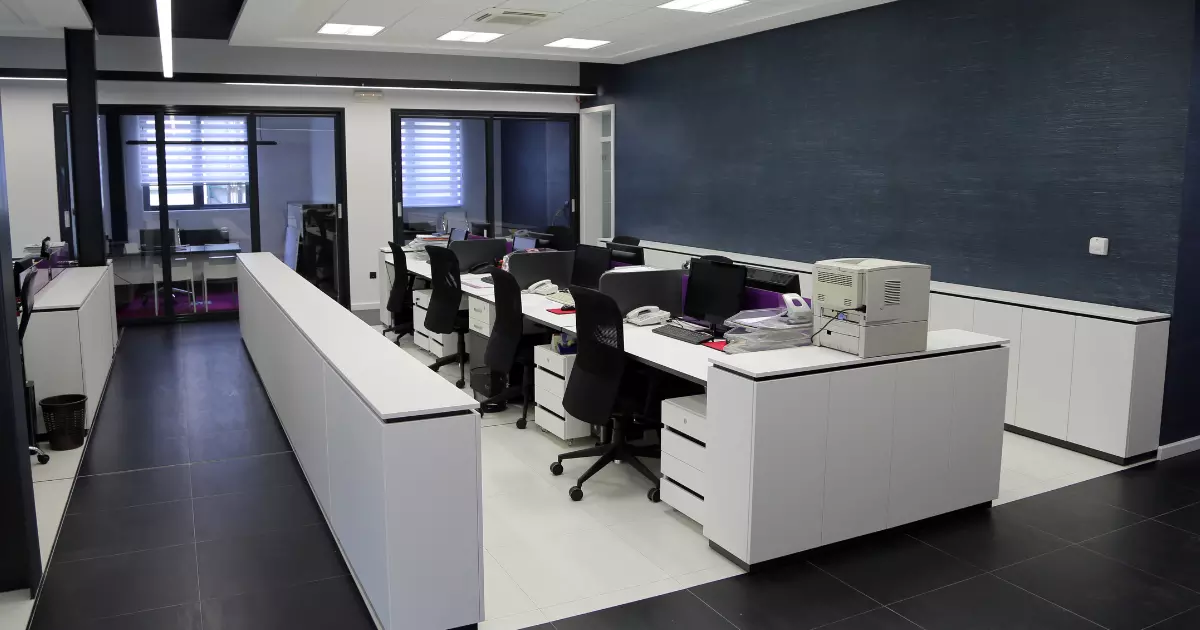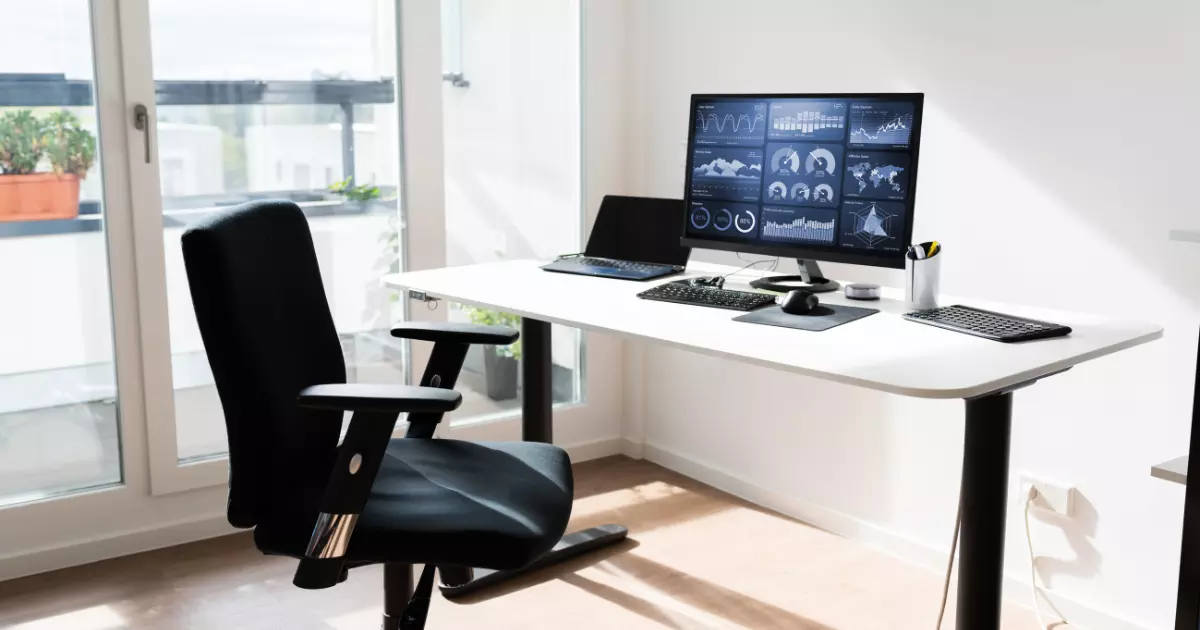What is Business Personal Property Insurance and Why Do You Need It?
Business personal property insurance protects your valuable assets. Without it, your office equipment, furniture, and other essentials are at risk. Imagine losing everything to a fire or theft and having no way to recover. These disasters can cause massive financial losses and disrupt your operations.
Many businesses underestimate the importance of proper coverage. They learn too late about the gaps in their policies. Don’t let that be you. This guide breaks down the key benefits, coverage details, and tips to find the right policy. Secure your business property today and avoid costly mistakes in the future.
What is A Business Personal Property Insurance?

This type of insurance protects the moveable property your business relies on. This includes essential items like office equipment, office furniture, and office supplies. The policy safeguards assets against theft, fire, and property damage.
Unlike real property coverage, which insures buildings and structures, this policy is different. It focuses on protecting tools, materials, and inventory that keep your business running. It ensures your operations can recover quickly after unexpected events. Coverage often extends to items stored off-site or temporarily in transit.
This type of insurance is crucial for businesses that depend on physical assets. Many policies include replacement cost coverage. This ensures that damaged items are replaced at their current market value. Additional coverage options are available for risks like natural disasters. This makes the policy flexible and comprehensive. Working with the right insurance agent helps you tailor the policy to meet your specific needs. This ensures full protection for your business contents. It also provides financial stability during tough times. Regularly reviewing your personal property coverage form is essential. This keeps your business prepared for any unexpected situation.
What Does Business Personal Property Insurance Cover?
In a nutshell, it protects the physical assets of a business. It covers items such as furniture, equipment, tools, and inventory. This insurance helps replace or repair these assets if they are damaged, destroyed, or stolen. Covered events often include fire, theft, vandalism, and certain weather-related damages. It ensures businesses can quickly recover and resume operations without significant financial strain.
The coverage extends to assets located at the business premises and sometimes items in transit. It may also cover leased or rented equipment. Policies vary, so it’s crucial to review terms carefully. Business owners should ensure their coverage matches the value of their assets. This proactive approach safeguards investments and supports long-term business success.
Why Business Personal Property Insurance Is Essential for Your Company

It offers essential protection for your business assets. It shields your business property from risks like theft, disasters, and liability claims. This type of policy provides flexibility with customizable coverage and replacement cost options. It also includes additional coverages and expert guidance from insurance brokers. These benefits ensure your operations remain stable, even after unexpected events.
Protection Against Financial Losses
This type of insurance protects your business from financial losses. These losses can result from theft, vandalism, fire, or accidents. This policy covers essential moveable property. Examples include office equipment, office furniture, and office supplies.
Without this coverage, replacing these items can create a financial strain. For example, if a fire damages your office space, this policy helps cover repair and replacement costs. It also protects your business income by minimizing downtime. By safeguarding your business property, you can focus on operations. This ensures stability during unexpected challenges.
Coverage for Natural Disasters
Climate disasters can cause severe damage to businesses. It gives protection against floods, hurricanes, and wildfires which often lead to costly disruptions. Having the right coverage for businesses is essential. It ensures you are protected from these catastrophic events. For example, a flood might destroy your office equipment or other business contents. With proper coverage, you can repair or replace these items quickly and efficiently.
Businesses located in high-risk areas should prioritize protection against climate disasters. Policies with strong commercial property insurance coverage provide vital support. They help you recover without facing overwhelming financial strain.
Being prepared for these events keeps your operations running smoothly. It also reduces the long-term financial and operational challenges of recovery.
Read also: Why Every Home Needs Flood Insurance
Replacement Cost Coverage
Replacement cost coverage ensures you can replace damaged items at today’s market value. It protects your business from financial strain by covering the full cost of replacements. Unlike policies that account for depreciation, this coverage offers funds for new equivalents. For example, if a fire destroys your computers, this coverage allows you to buy replacements. You can do so without facing extra costs.
This coverage operates on a replacement cost basis, which guarantees fair reimbursement. It also includes functional replacement cost coverage. This option allows you to replace outdated items with modern alternatives. It is especially valuable for businesses relying on specialized equipment.
By choosing a policy with personal property coverage, you safeguard essential tools and materials. This protects against physical damage to items like office furniture or equipment. Although it may increase property insurance costs, the benefits far outweigh the expenses. Including this feature in your policy ensures smooth operations after any loss.
Liability Coverage for Property-Related Claims
Liability coverage protects your business from claims related to property damage. It applies to situations where your business causes harm to a piece of property owned by others. For example, a water leak from your office could damage a neighboring business. This coverage helps with repair costs and any associated legal fees.
A strong liability policy ensures you are prepared for these unexpected situations. Pair it with a personal property policy to cover damage to rented types of property, like office spaces. Together, these policies offer robust protection for your business assets.
Understanding your limit of liability is crucial to avoid gaps in coverage. For added security, consider combining this with a professional liability policy. This protects your business from risks tied to errors or omissions in services. Proactively managing liability risks saves money and protects your business’s reputation. It also provides peace of mind for long-term success. Check out our guide to business liability insurance to learn more.
Customizable Policies
Every business has unique insurance needs. Customizable policies allow you to tailor your coverage to match those needs. You can add specific protections like machinery insurance or marine insurance. These options are especially useful for businesses with specialized risks.
For instance, a construction company might need coverage for heavy equipment. Meanwhile, a tech company may focus on protecting office equipment and data. Adjusting policy limits and deductibles ensures your policy fits your budget.
Working with an experienced insurance broker helps you find the right balance. This flexibility ensures your business property insurance works for you.
Additional Coverages
Many policies include additional coverages to provide better protection. These options address risks that standard policies might not fully cover. For example, extra expense coverage helps with unexpected costs. It can cover expenses like renting temporary office space after a disaster. If your business owns or leases real estate, adding building coverage is essential. This coverage protects your property from damage caused by events such as storms or fires. It helps ensure that your property remains valuable and reduces financial risks.
Including liability insurance adds another layer of security. This type of coverage protects your business from legal expenses. It also helps with repair costs related to third-party property damage. For example, if an issue in your building damages a tenant’s property, liability insurance can cover the legal fees. Checking your coverage limits is also crucial. It ensures you are adequately protected when filing a covered claim.
The insurance industry offers specialized policies to address a wide range of risks. Choosing tailored coverage helps your business prepare for any claim type. This includes claims arising from natural disasters or liability issues. Enhancing your commercial property insurance policy with more options provides full business protection.
By investing in these additional coverages, you reduce risks. You also create a stronger safety net for unexpected events. It also gives you peace of mind knowing your business is well-prepared.
Support from Experienced Insurance Brokers
Navigating the commercial insurance market can be overwhelming. An insurance expert makes this process much easier. They analyze your risks and recommend the best coverages for businesses. Brokers explain important terms like coinsurance clauses, coverage exclusions, and limits of insurance. This helps you understand your insurance contract clearly and avoid confusion.
Experienced brokers also identify coverage gaps and provide tailored solutions. For instance, they might suggest business interruption coverage. This coverage protects your income after a disaster. They also review your aggregate limit and ensure your policy aligns with your needs. This includes recommending a strong liability insurance policy for added security.
By working with a broker, you gain access to expert guidance and reliable advice. Their services save you time and reduce the risk of costly mistakes. They also help manage protection for claims. Brokers review professional service costs to keep your policy affordable. They ensure your insurance is effective. It is tailored specifically for your success.
Reduced Financial Impact of Claims
Filing a claim after a damaging event can be overwhelming. Business insurance helps reduce this burden by covering essential costs. These include repairs, replacements, and operational disruptions. For instance, if a storm damages your office furniture, the policy helps cover the expenses.
A significant part of the majority of property claims involves damages to critical business assets. Having strong policy limits and appropriate deductibles minimizes out-of-pocket costs. Regular reviews with an insurance agent ensure your coverage matches your current needs.
Proactively managing your claims history lowers your risk of claims in the future. This approach keeps your business financially secure and protected. It also ensures faster recovery and uninterrupted operations after a loss.
How to Choose The Best Business Personal Property Insurance Provider

Choosing the right provider requires careful planning. Begin by understanding your unique business needs and the risks you face. The right provider will align with your budget while offering comprehensive coverage. It’s also important to research the provider’s reputation and claims process. Taking the time to evaluate these factors ensures your business remains protected.
Understand Your Business Needs
Start by identifying the assets you need to protect. These may include furniture, equipment, and inventory. Consider specialized tools or unique items essential to your operations. Determine the types of risks your business is exposed to, like theft, fire, or weather damage. Make sure your policy covers these potential threats. Assessing your needs is the foundation for choosing the right provider.
Evaluate Policy Coverage and Limits
Review the coverage options available to ensure they align with your requirements. Check for inclusions like business contents insurance and income protection. Understand the policy limits and how deductibles might affect claims. Look for flexible options that can adapt as your business grows. Policies with clear terms and fair limits provide better peace of mind.
Research Providers’ Reputation and Claims Handling
Focus on providers with a strong track record for claims management. Look for customer reviews that highlight smooth claims experiences and prompt resolutions. Consider insurers with expertise in your industry or region. Providers with skilled claims adjusters can simplify the process during a loss. A reliable reputation ensures your provider will deliver when you need them most.
Check for Additional Support and Features
Choose a provider that offers added support. This includes certificates of insurance and clear explanations of terms. Look for features like occurrence deductibles and coverage for specific needs, such as wind or hail damage. A company that simplifies claims payment during disruptions is invaluable. Providers that also support payroll coverage offer even greater benefits. Reliable support ensures your policy adapts as your business evolves.
Consider Budget and Cost Transparency
Evaluate how premiums, deductibles, and potential penalties fit within your budget. Avoid underinsuring to save costs, as it could lead to larger losses. Consult insurance brokers or surplus line companies for guidance on competitive pricing. Transparent pricing and a fair cost-benefit ratio are key to making the right decision. Balancing cost and coverage ensures your business is well-protected.
Frequently Asked Questions
How do deductibles affect my insurance policy?
Deductibles determine the amount you must pay out-of-pocket before your insurance covers the rest. Policies often include options like percentage deductibles or standard property deductibles. For example, a deductible on wind damage may vary based on your location or risk level.
Choosing the right type of deductible is important. It helps you balance affordability and financial preparedness. Reviewing your deductibles regularly ensures they match your business needs and budget.
How is replacement cost coverage different from actual cash value?
Replacement cost coverage reimburses you for the full cost of replacing damaged property. It uses today’s market value, which allows you to buy new equivalents. In contrast, actual cash value accounts for depreciation. This means you may receive less money if your items are older or worn.
Opting for functional replacement cost valuation can help. It provides modern replacements and ensures your business recovers quickly.
Do I need insurance if I lease my office space?
Yes, this coverage is still essential even if you lease. Your landlord’s policy likely covers the building itself. However, it does not protect your business’s belongings. Items like office equipment, furniture, and other business contents are your responsibility.
This insurance protects you against unexpected events like fires or theft. It also helps cover operational costs during recovery, ensuring business continuity.
Read also: Best Personal Property Insurance Tips and Coverage Guide
Wrapping Up
Every business depends on valuable assets. These include business contents insurance, office equipment, and specialized tools. Business personal property insurance protects these assets from various risks. These include fires, theft, and natural disasters. It also helps cover normal operating expenses during a loss. This ensures your business recovers quickly and smoothly. Many policies offer features like functional replacement cost valuation. These include protection for building property limits and large amounts of contents. The right coverage reduces commercial property insurance rates and avoids cosmetic damage exclusions. It also helps you manage and cut uncovered expenses.
At Luxe Insurance Brokers, we offer various types of business insurance including, business owners’ insurance and commercial property insurance coverage. Don’t leave your business vulnerable to unexpected risks. Contact us today at 480-568-2566 to explore comprehensive commercial policy options. We service various areas in Scottsdale, Arizona.
